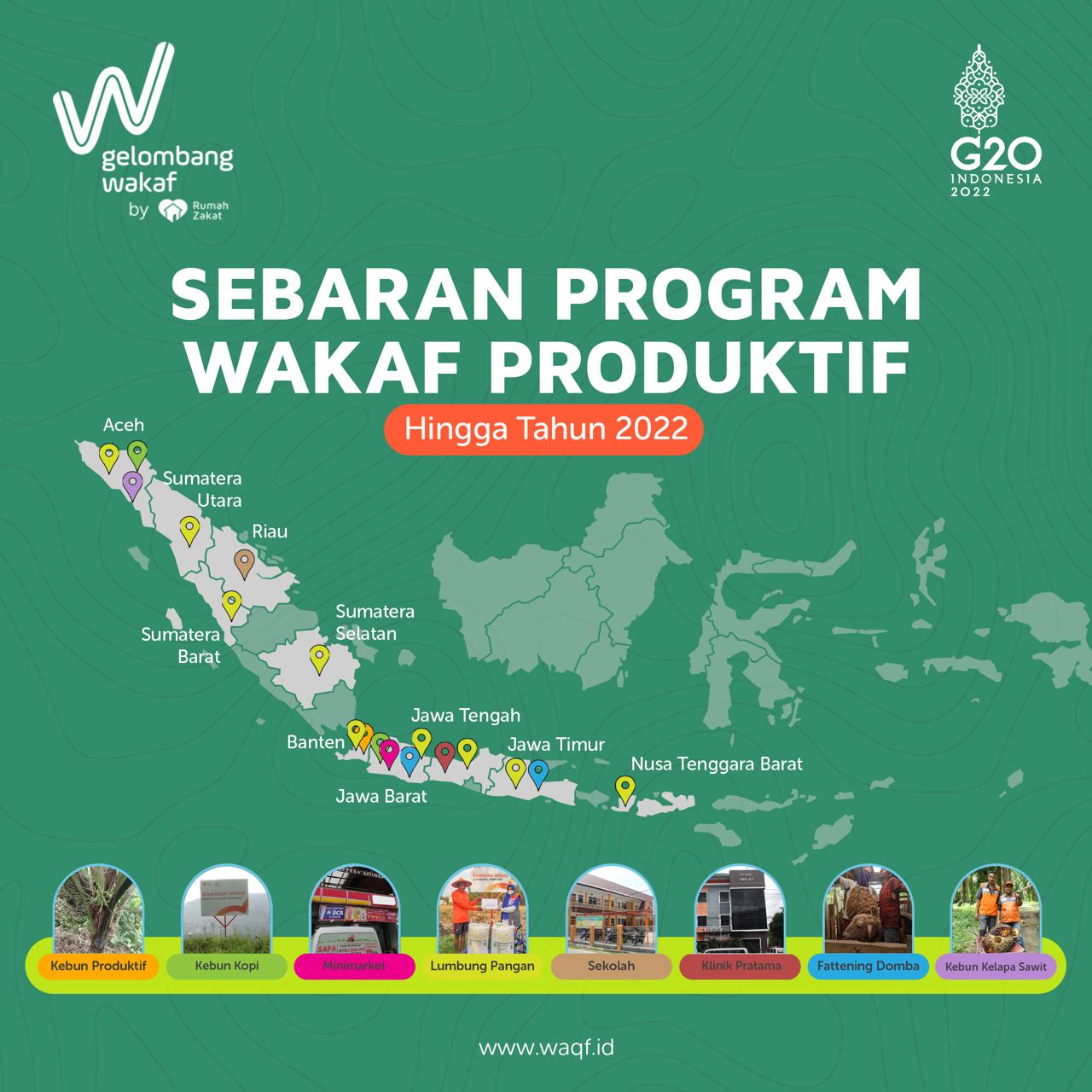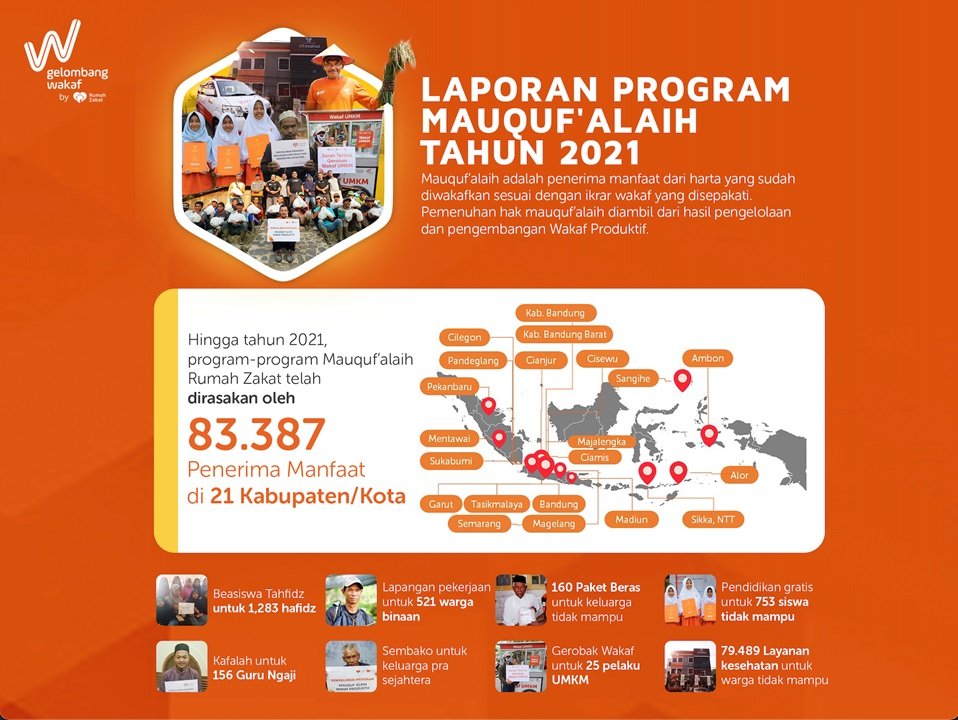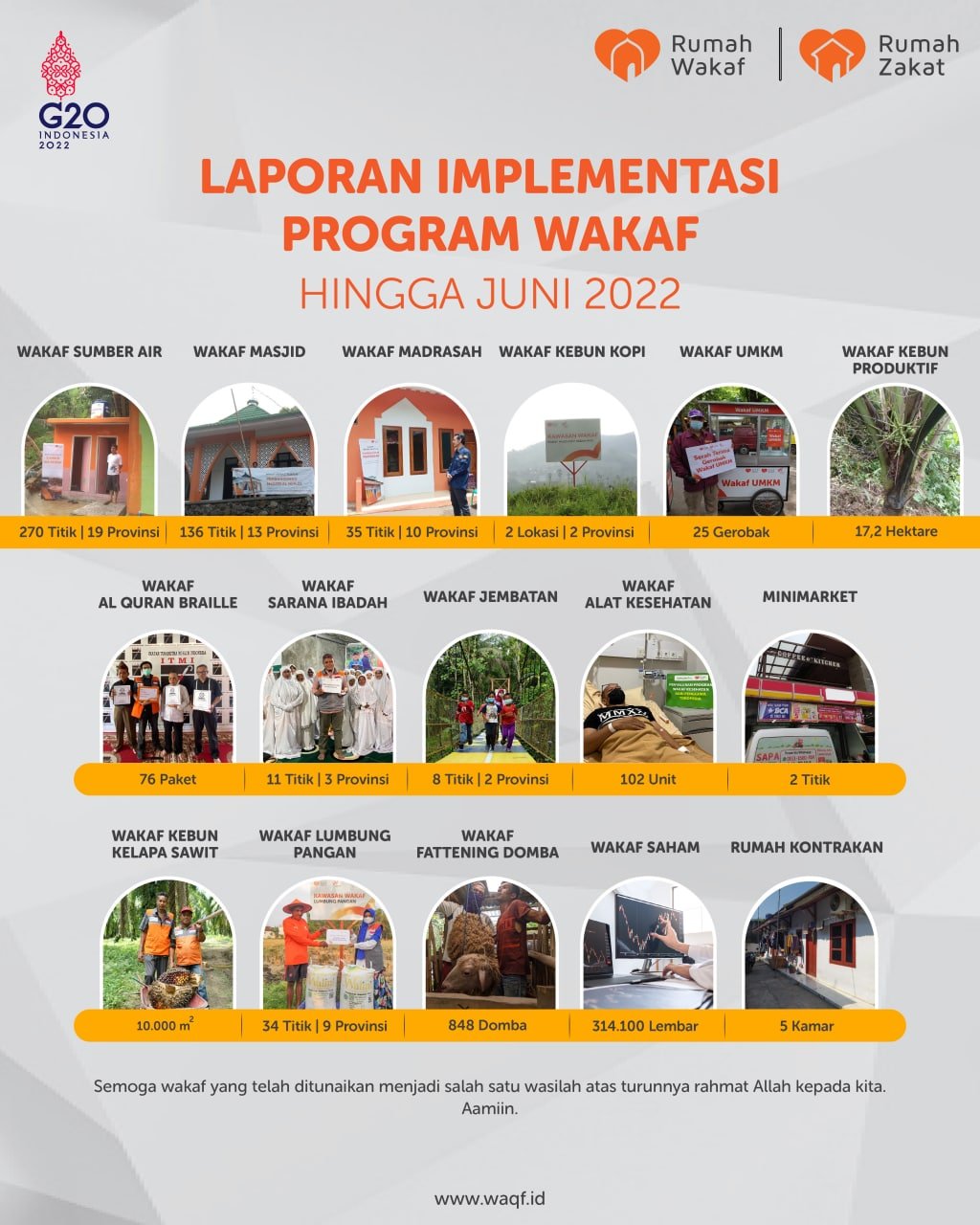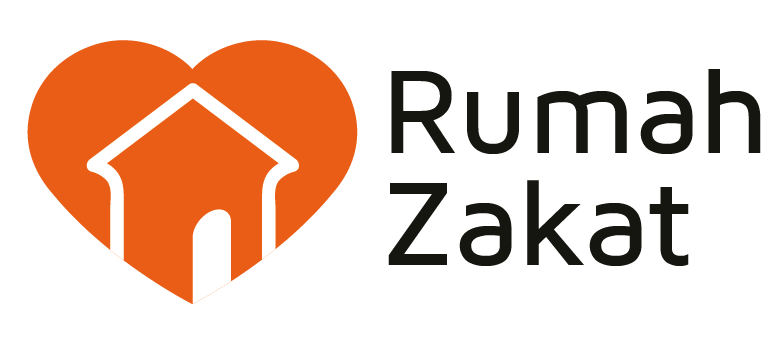Waqf
DEFINITION OF WAQF
Waqf comes from the word wa-qa-fa, ya-qi-fu, waq-fan which means to stop or hold. In general, waqf means giving sadawau with property that can be used in the long term and sustainably to be used for the interests of worship and public welfare.
PRIORITY OF WAQF
Waqf is one of the pillars of sharia philanthropy. The priority of waqf lies in its continuous rewards and benefits. As in the hadith of Rasulullah SAW:
“When a person dies, his deeds cease, except for three things: giving sadaqah, useful knowledge and pious children who pray for their parents” (HR. Muslim)
FUNFACT ABOUT WAQF
One of the evidences of waqf that we can still find today is the Waqf of Sumur Raumah from Utsman bin Affan. His waqf continued to grow into a date palm garden planted with 1,550 date palm trees. Every time the harvest was distributed to orphans and the poor, the other half was saved in a bank account in the name of Utsman bin Affan which was managed directly by the Saudi Arabian Ministry of Waqf. Over time, the money continued to grow so that the government distributed it by building an international standard hotel and a mosque named Utsman bin Affan. The hotel is managed by the Sheraton network and consists of 15 floors.
In Indonesia, waqf apparently played a role in the struggle for Indonesian independence. Religious waqf was the beginning of waqf practiced by the Wali Songo by building mosques. After Indonesia’s independence, the first aircraft of the Republic of Indonesia came from the waqf of the Acehnese people. At that time, even though life was very tight, the people of Aceh did not hesitate to spend their possessions as capital to buy an aircraft. Another example of waqf is the gold waqf at the top of Monas given by Teuku Markam as much as 28 kg of gold. Teuku Markam also freed the Senayan land as the forerunner of the largest stadium in Southeast Asia at that time, namely Gelora Bung Karno
Waqf Program
Some ongoing waqf programs include:
1. PRODUCTIVE WAQF
Productive Waqf is the management of cash waqf managed in a productive manner, so that it is productive and produces results and is sustainable. The results of this productive waqf are the source of eternal funds for financing the needs of the community, such as financing education & quality health services.
Foundations of Productive Waqf Management
From Ibn Umar ra, he said: “That friend Umar ra, obtained a plot of land in Khaibar, then Umar ra, went to Rasulullah SAW to ask for guidance” Umar bin Khattab said: “O Rasulullah SAW, I got a plot of land in Khaibar, I have never received a treasure that pleases me like this before, so what do you command me (for this treasure)?”
Rasulullah SAW said: “If you wish, keep the principal and give sadaqah (the results), not selling, not giving away, and not inheriting. Ibn Umar said: “Umar gave it (the results of managing the land) in charity to the poor, relatives, slaves, the people of Allah, and guests, and it is not forbidden for the person who manages (nazhir) the waqf to eat from its results in a good manner (appropriately).” ) or feeding others without the intention of accumulating wealth.
Rumah Zakat partners with Rumah to manage productive Waqf, while productive waqf will be distributed in the form of productive garden waqf, clinic waqf, village infrastructure waqf, and other programs.

Mauquf alaih is the beneficiary of waqf assets. In terms of classification, there are two types of people who receive waqf: certain (mu’ayyan) and not certain (ghaira mu’ayyan).
What is meant by certain is that it is clear who receives the waqf, whether one person, two people or a group, all of which are certain and cannot be changed.
Meanwhile, what is not certain means that the person who receives the waqf is not specified in detail, for example someone for the needy, the poor, a place of worship, etc.
The following are Mauquf Mauquf Alaih who received the benefits of the waqf program

2. WAQF CHARITY
Charity Waqf is when the waqf that is paid provides direct benefits to the community. Such as waqf for public facilities and worship such as waqf for mosques, water sources, madrasas, etc. This type of waqf can be paid in the form of waqf for immovable objects such as land, buildings or waqf for movable objects such as waqf through money.
Rumah Zakat partners with Rumah Wakaf to implement charity waqf, the charity waqf that is implemented is mosque renovation waqf, water source waqf, medical equipment waqf, UMKM waqf, madrasah waqf and others.
The following are waqf programs managed by Rumah Zakat in partnership with Rumah Wakaf until June 2022



